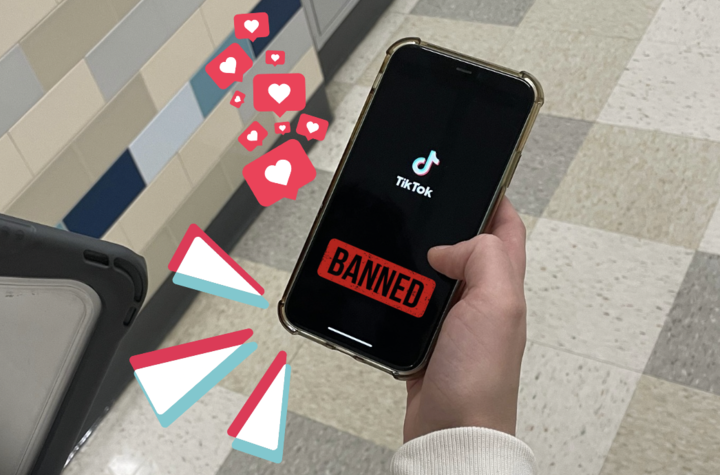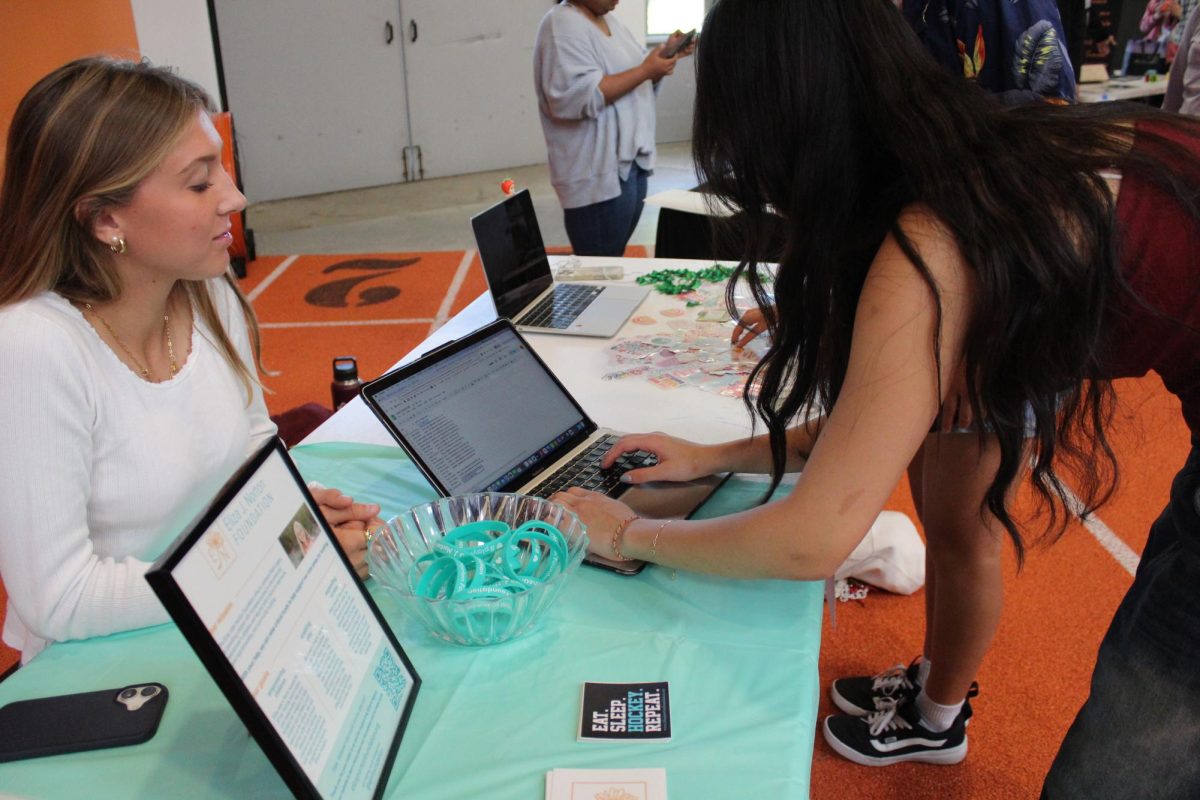The Supreme Court officially upheld the law that will ban the app TikTok in the United States on Friday, Jan 17. This means that the ban will be effective starting Sunday, Jan 19.
TikTok is a social media platform where users can share, post or view short videos. The Chinese company ByteDance bought the app Musical.ly to expand its global footprint and the app officially combined both TikTok and Musical.ly apps into one platform in 2018. The app began to rapidly gaining popularity in 2018 due to its complex algorithm which tracks users’ most watched videos. Today, there are over 120 million Americans with TikTok on their devices.
TikTok’s algorithm collects data by tracking the time users spend on different posts as well as the probability that they will return to a certain type of content. This data allows TikTok to manipulate each user’s For You page, which can make using the app extremely addictive.
“Every time I open my phone I’m on TikTok for about 20 minutes,” sophomore Callie Zedower said. “The algorithm is just for me, and it’s really smart, which is probably why it’s getting banned.”
Some lawmakers and regulators in America believe that ByteDance is a national security risk because sensitive user data, such as user locations, could be taken by the Chinese government. Another concern that has risen is how TikTok can influence the way people think by filtering people’s feeds to only show specific content, according to NPR.
Due to the rising concerns, President Biden signed a legislation in the spring of 2024 requiring Byte Dance to sell TikTok to a government-approved country by Jan. 19, or face an effective ban in the United States. While President-Elect Donald Trump supported the TikTok ban in 2020, he requested to pause the ban on Dec. 27.
“President Trump opposes banning TikTok in the United States at this juncture, and seeks the ability to resolve the issues at hand through political means once he takes office,” a brief from Trump’s party stated.
On Jan. 13,United States Senator Ed Markey pushed President Biden to delay the TikTok ban because it allegedly violates users’ first amendment protection of free speech. Markey introduced his plan to create legislation called the “Extend TikTok Deadline Act.” This would have potentially delayed the ban by 270 days. However, the Senate Democrats announced that the Senate Republicans blocked the act on the night of Jan. 15.
“A TikTok ban would impose serious consequences on millions of Americans who depend on the app for social connections and their economic livelihood,” Markey said during his Floor Remarks.
Some hoped that TikTok would be sold to an approved individual or group before it gets banned. Wealthy investors such as Kevin O’leary, Frank McCourt and James Donaldson — otherwise known as online alias Mr. Beast — have stated that they would like to buy the app. O’Leary partnered with Project Liberty, founded by McCourt, to formally offer their proposal and biggest campaign, The People’s Bid for TikTok.
President of Project Liberty Tomicah Tillemann said on their website that they “believe our bid is the right path forward for the millions of Americans who want to continue using TikTok.”
Some find this ban to harm their first amendment right to Freedom of Speech. Junior Rufat Hasanov expressed that the ban is “stupid” and “violates” his first amendment right. Although this has been expressed by the public and ByteDance, the Supreme Court judges dismissed the claim arguing that the security concerns are much greater.
“There is no doubt that, for more than 170 million Americans, TikTok offers a distinctive and expansive outlet for expression, means of engagement, and source of community,” the Supreme Court wrote of their decision. “But Congress has determined that divestiture is necessary to address its well-supported national security concerns regarding TikTok’s data collection practices and relationship with a foreign adversary.”
TikTok CEO, Shou Zi Chew, released a public TikTok video on Jan. 17 in response to the Supreme Court decision.
“To our American users, thank you for making our TikTok community such a rich and vibrant space for surprising and delighting us everyday,” Chew said in the video. “We will do everything in our power to ensure our platform thrives as your online home for limitless creativity and discovery.”
With the eventual enforcement of a ban, millions of teens and adults will be affected because of the impact of popular trends. TikTok periodically introduces trends to the public that arise from creators on the app promoting them. These trends have influenced the culture of modern society in both positive and negative ways.
“For some trends that are simply just dances, I think they are really positive [and] fun experiences,” freshman Eloise Copolla said. “But I think that calling people “big backs” and making fun of certain people is a really negative trend and definitely the bad side of TikTok.”
Some argue the ban will be helpful because it will eliminate the risk of accidental deaths that happen as a result of attempts to join in on dangerous trends. An example of this is the infamous “blackout challenge”, in which participants hold their breath for as long as possible until they pass out. The trend came to a halt after it caused the deaths of 20 children in just 18 months. Additionally, as any social media app can do, TikTok can expose teens to unrealistic body standards and other toxic habits.
However, TikTok also introduces positive outcomes. Some small businesses rely on TikTok as a way of advertising and getting new consumers. Trends can also introduce rich culture and bring people together.
“Overall I feel disappointed in the ban, because so many people, myself included, have worked for years trying to get where they are and to have it taken all away is very discouraging,” social media influencer and junior Zoe Garcia said. “I think it will really hinder my growth and I don’t think I’ll be able to reach the point I have on another platform.”
Update: On Sunday, Jan. 18, the TikTok ban went into place. The app no longer shows up in the app store of phones in the United States and therefore cannot be downloaded on new devices. Users who already had TikTok downloaded were no longer able to use the app. However, at roughly 2 p.m., users were able to access the app again. TikTok is still unavailable to download on the app store.
In addition to regained access to TikTok, users also received the following message from TikTok:
“Welcome back! Thanks for your patience and support. As a result of President Trump’s efforts, TikTok is back in the U.S.! You can continue to create, share, and discover all the things you love on TikTok.”
President-Elect Donald Trump’s inauguration will be held tomorrow, Jan. 20.































